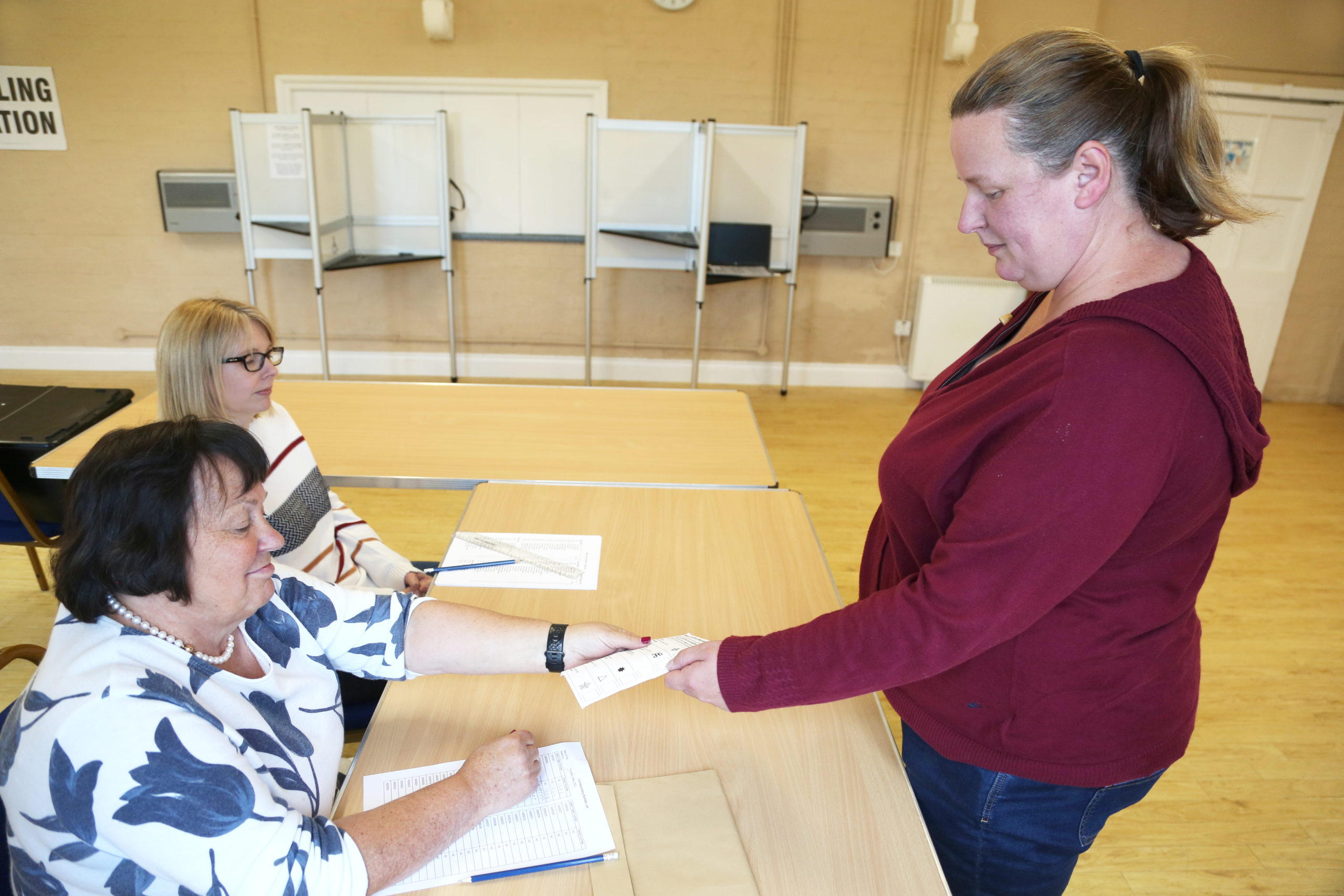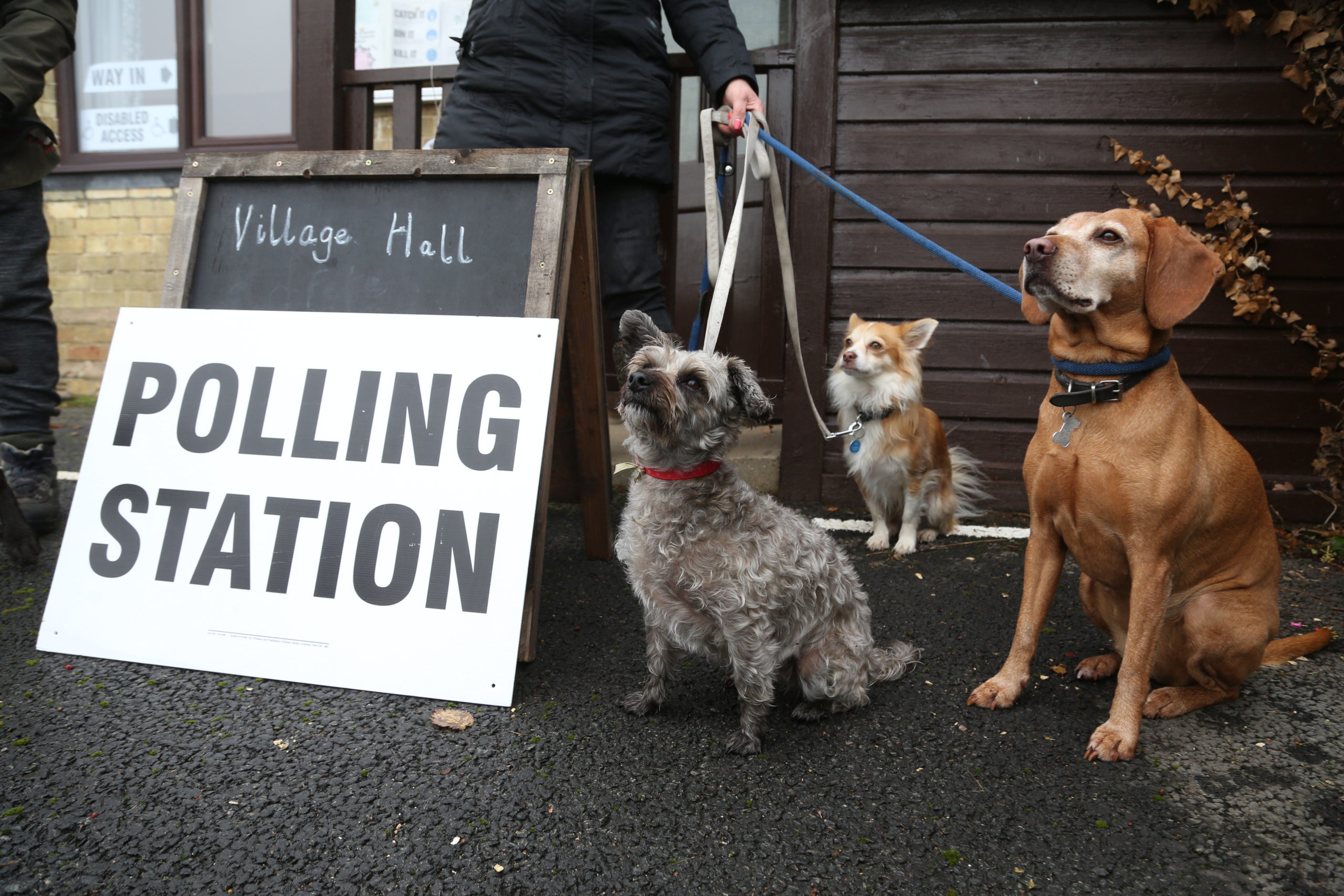3. What happens at a polling station on election day?
On election day, you’ll need to go to your polling station unless you have chosen to have a postal or proxy vote.
It’s usually a public building like a nearby school or village hall, but polling stations have popped up in all kinds of places like pubs and even lifeboat stations!
When will I be able to go and vote?
In the UK, elections are usually held on Thursdays and polling stations are always open from 7am until 10pm.
As long as you’re in the queue to vote by 10pm, you’ll be allowed to vote, and you will likely be given a queue card so you can show you were in the queue before the poll closed.
Do I need to bring anything with me?
Yes, from May 2023 onwards, you will need to bring valid photo ID with you when you go and vote in a polling station – you can find more about this our our photo ID information page.
It also helps our staff if you can bring your poll card with you, but you don’t need it in order to vote.
What happens inside the polling station?
Inside the polling station, there will be people who are working for the Returning Officer from your local council. There’s usually one person in charge who is called the Presiding Officer, and a couple of other people called Poll Clerks.
When you enter the polling station, tell the staff your name and address so they can check that you’re on the electoral register. They will then ask for you photo ID so they can check it against the details on the register.

What help is there for people with disabilities?
Disabled voters are entitled to support at polling stations so that they can vote securely the same as anyone else. Tactile voting apparatus are available at all polling stations, as well as tools like writing grips, lower-level polling booths and magnifiers.
For the elections in May 2023, you will also need to bring appropriate ID with you as part of the new Voter ID process. We’ll publish more information about this closer to the time.
The staff will cross your name off their register and then hand you your ballot paper(s) so you can cast your ballot.
If you, or someone you know, has a learning disability and/or autism, and you assistance, you can choose to use a voting passport. This is a form which you can hand to our polling staff which will help them to easily understand any reasonable adjustments needed to ensure you are able to cast your vote. For details on how to download a voting passport, please visit the My Vote My Choice website.
Can I bring my pet to the polling station?
You can take your pet to polling stations. In fact, taking dogs to polling stations is so popular that the hashtag #DogsAtPollingStations has trended in recent elections. It has become such a thing that this time around Twitter has teamed up with Dogs Trust to give the hashtag its very own emoji.

Is there a dress code when I go and vote?
There is no dress code when visiting the polling station and it is OK to wear garments that might obscure your face: for instance, hoodies or the niqab.
Please bear in mind that you will need to remove any face coverings so that staff can verify your identity as part of the requirements for Voter ID, however.
It is generally a good idea to not wear party-affiliated colours to the polling station as it could be viewed as influential towards other voters.
Can I take photos in the polling station?
No photos can be taken inside a polling station, but you can take photos outside the polling station. Just remember to be respectful of other voters!
What about sharing information on social media?
If you wish to share that you have voted and would like to encourage others to do the same, you are welcome to post on social media about going to vote.
While it is ok to tell people how you have voted, it is illegal to share how another individual voted (under section 66 of the Representation of the People Act).
Who are the people outside the polling stations?
You may notice people hanging around outside polling stations, they are volunteers for political parties called tellers. You have no obligation to speak to tellers, but they may ask you for your poll number (the reference on your poll card with letters and numbers). This is because the tellers are trying to gauge how many people have voted and how many people they still need to encourage to go to the polls.
How do I cast my vote in the polling station?
For all you need to know, check out our guide on casting your vote in a polling station.
Contact us - Electoral services
01235 422600
(Text phone users add 18001 before dialing)
South Oxfordshire District Council
Abbey House
Abbey Close
Abingdon
OX14 3JE

